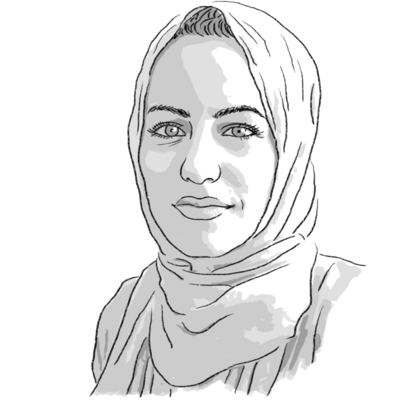Error loading media: File could not be played
00:0000:0000:00
00:00
 Husna Haq
Husna Haq
With a mix of trepidation and excitement, millions of students in the United States and beyond returned to school this month. For 67 girls in France, la rentrée ended in dismay as they were turned away from school for wearing the abaya, a long, loose dress worn by some Muslim women.
The French government had announced a ban on abayas in school, arguing they violate laïcité, a strict interpretation of secularism. “Schools must ... be protected from religious proselytism, from any embryo of communitarianism,” French Education Minister Gabriel Attal said.
The abaya is the latest in a series of bans in France: a hijab ban in state schools in 2004; a niqab, or face veil, ban in all public spaces in 2010; a burkini, or full-coverage swimsuit, ban in 2016 that was later overturned; and a ban on hijab in sports competitions in 2022.
The bans are part of a broader effort to remove all religious symbols, including Catholic crosses and Jewish kippas, from public schools. Laïcité arose more than a century ago from a desire to curb the influence of the Roman Catholic Church on public education.
French President Emmanuel Macron has said the country will be “uncompromising” in upholding the ban. But the trend has made France’s sizable Muslim community feel targeted.
The bans clash with the Muslim concept of haya, which encompasses decency, modesty, and self-respect. The principle applies to both men and women, prescribes modest dress, and includes one’s comportment, interactions, and more.
The bans also make accessing education more challenging for girls, who have struggled for that access across continents and centuries.
And for many Muslims in France, who are from former French colonies in North Africa, the bans speak to a neocolonial mindset. Muslims must literally shed their identities and conform to a European standard of dress and appearance.
As France’s Muslim population grows, the question becomes more urgent: Can the nation maintain secular traditions while also respecting the traditions and values of its diverse communities?

Our name is about honesty. The Monitor is owned by The Christian Science Church, and we’ve always been transparent about that.
The Church publishes the Monitor because it sees good journalism as vital to progress in the world. Since 1908, we’ve aimed “to injure no man, but to bless all mankind,” as our founder, Mary Baker Eddy, put it.
Here, you’ll find award-winning journalism not driven by commercial influences – a news organization that takes seriously its mission to uplift the world by seeking solutions and finding reasons for credible hope.
Explore values journalism About us